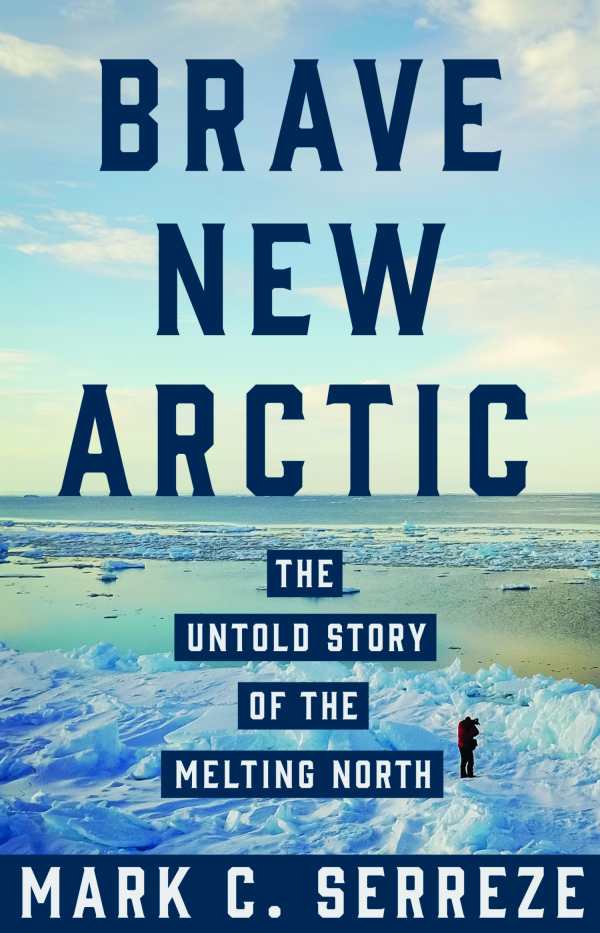Brave New Arctic
The Untold Story of the Melting North
Geographer Mark C. Serreze admits that it took him a while to fully understand how human actions cause drastic environmental changes in the Arctic. However, when mounting evidence helped him reach his “epiphany,” he shifted gears quickly, becoming an ardent advocate for the endangered polar region. His book sounds a clarion call about the global consequences of a melting north.
Serreze started his scientific career as a graduate student measuring ice caps in the Canadian Arctic. His narrative follows his path to becoming an expert on sea ice and Arctic physical geography. Concurrently, he summarizes scientific advances in data collection, computerization, and climate modeling that enabled scientists to tease out human influence from natural variability in the warming global climate.
Though full of acronyms and complex concepts, Serreze’s text is clear, accessible to a popular audience and accompanied with numerous illustrations. Weather wonks and fans of polar adventure will be especially riveted as Serreze describes “Arctic amplification”—the various environmental feedback loops that enhance rising air and water temperatures, a melting cryosphere, and altered sea and wind circulation. He patiently builds the case for action to reverse these patterns, which cause extreme weather and rising sea levels elsewhere, too.
At times the book has the feeling of a suspenseful detective novel, with dedicated scientist protagonists trying to beat the clock against impending environmental disaster, all the while battling self-interested political and corporate actors who lust after “resources” that can more easily be extracted from an ice-free zone and who threaten important research work with lawsuits and funding cuts. At other times, there is a melancholy tone as the author elegizes with past observations of a frozen landscape that will never be the same again.
Brave New Arctic paints a chilling scenario for a rapidly warming polar region if scientists and government leaders cannot find a way to work together—and soon—to reverse the worst aspects of climate change.
Reviewed by
Rachel Jagareski
Disclosure: This article is not an endorsement, but a review. The publisher of this book provided free copies of the book to have their book reviewed by a professional reviewer. No fee was paid by the publisher for this review. Foreword Reviews only recommends books that we love. Foreword Magazine, Inc. is disclosing this in accordance with the Federal Trade Commission’s 16 CFR, Part 255.

